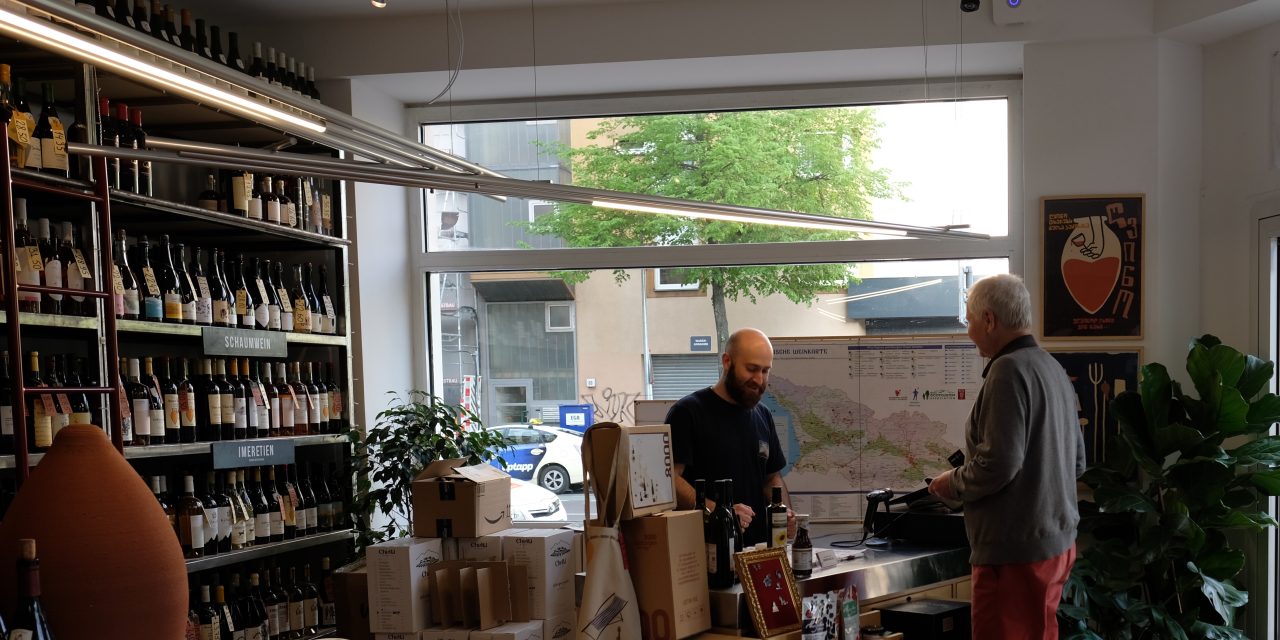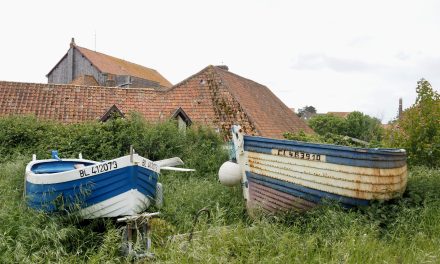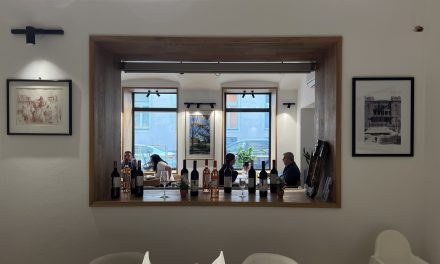Berlin is a colorful city containing a variety of cultures, making it the perfect location for exploring and experiencing all in one place. As the capital of Germany, it has a lot to offer with its drinking culture, a fact reflected in Statistics: nearly 19.4 million hectoliters of wine are consumed on average in Germany each year. So what happens when Berlin’s diverse identity opens a door for mostly “unknown” wine-making countries? Is this the best place for wine lovers, especially those who enjoy new tastes with a lot of history behind them?
Paul Knittel, a Berlin-based wine expert and teacher at Berlin Wine School, remarks, “German allegiances in terms of wine countries have changed quite a bit. We used to be super focused on Italy, and then for a while, it became Spain.” This city has a lot of tendencies that could explain why it can be a perfect home for Georgian wine since there is always room for exploring and trying out new things.

view of 800 vintages from the street.
In the summer of 2023, on Großbeerenstraße, the first-ever Georgian wine bar in Berlin opened up. 8000 Vintages draws its name from the 8000-year history and harvest Georgian wine has seen. “If I tell people, hey, this is from Georgia or Slovenia, the Czech Republic, they’re really open to that because it’s sort of something new, something interesting for them,” mentions wine expert Paul Knittel.
Within the space of a wine-bottled covered walled bar, every customer is from a different background. The usual ones, the new ones. Ones who cannot get enough of a terrace, ones who can not decide which wine to get after all the degustation. 8000 Vintages creates a space for wine lovers and explorers. As the statistics from Deutsches Weininstitut shows, the demand for alcoholic beverages decreased last year by minus 2.1% in Germany, but the sales from foreign origins stayed the same. So if we believe the numbers, Berlin really is the new vineyard for every wine lover.
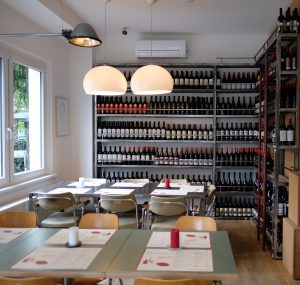
the main part of interior in the bar is wine.
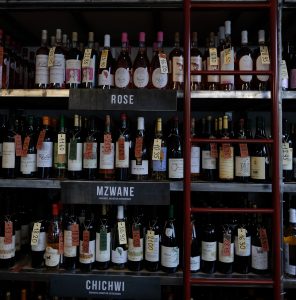
rows of different types of wine on the walls of the bar.
As Berlin’s 8000 vintage representative George Sujashvili mentions: “We noticed the rising interest in Georgian wine, especially as there’s limited availability in Europe. Berlin, known for its wine culture and international vibe, felt like the ideal city to introduce Georgian wine to a broader audience.” As george mentioned the bar holds degustation every Sunday for everyone who wants to get to know more about Georgian wine. This is a place for wine lovers, friends, couples. 8000 vintages is now a part of Berlin wine culture as well as the specific culture of wine drinking, having a conversation, sharing feelings.
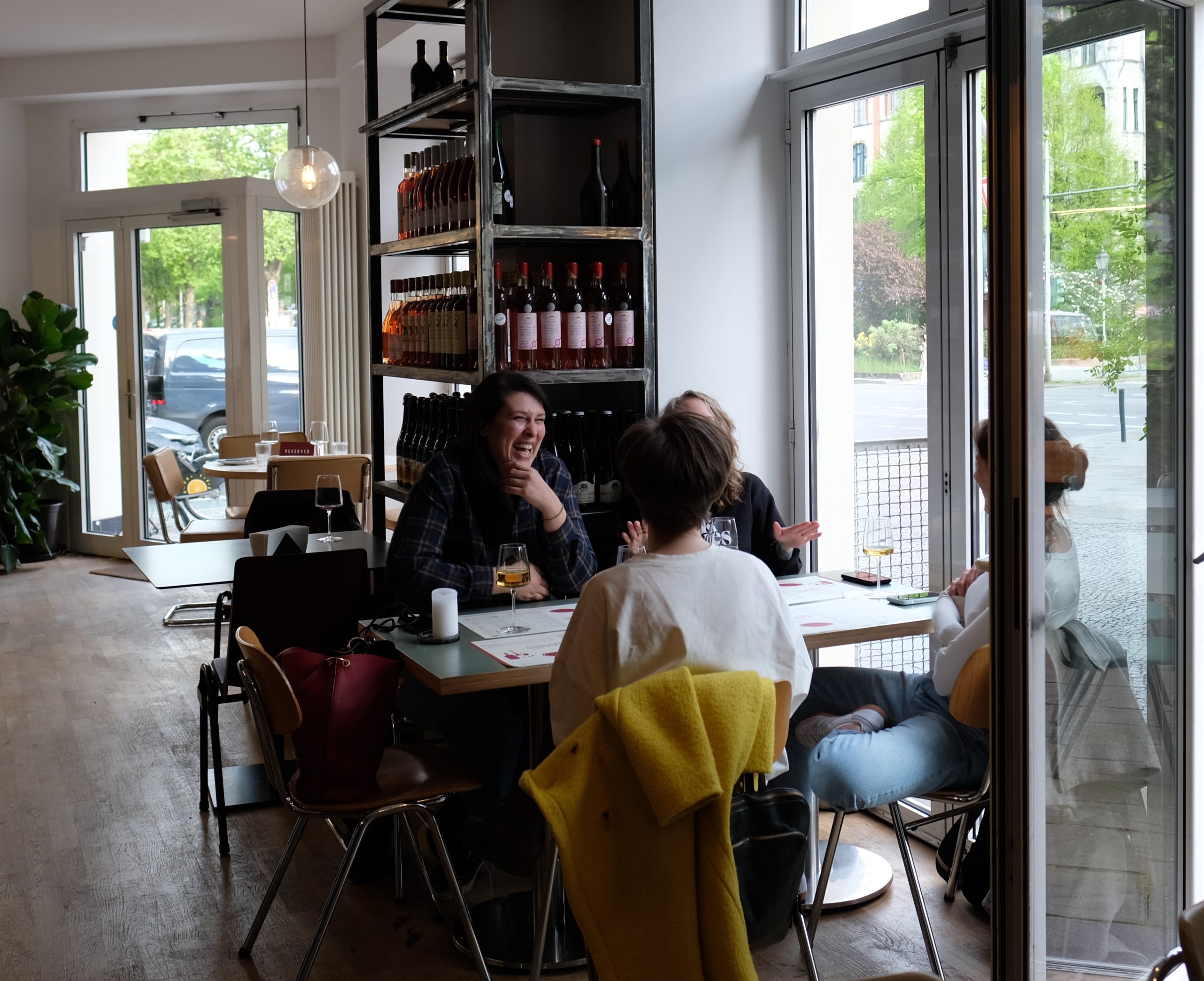

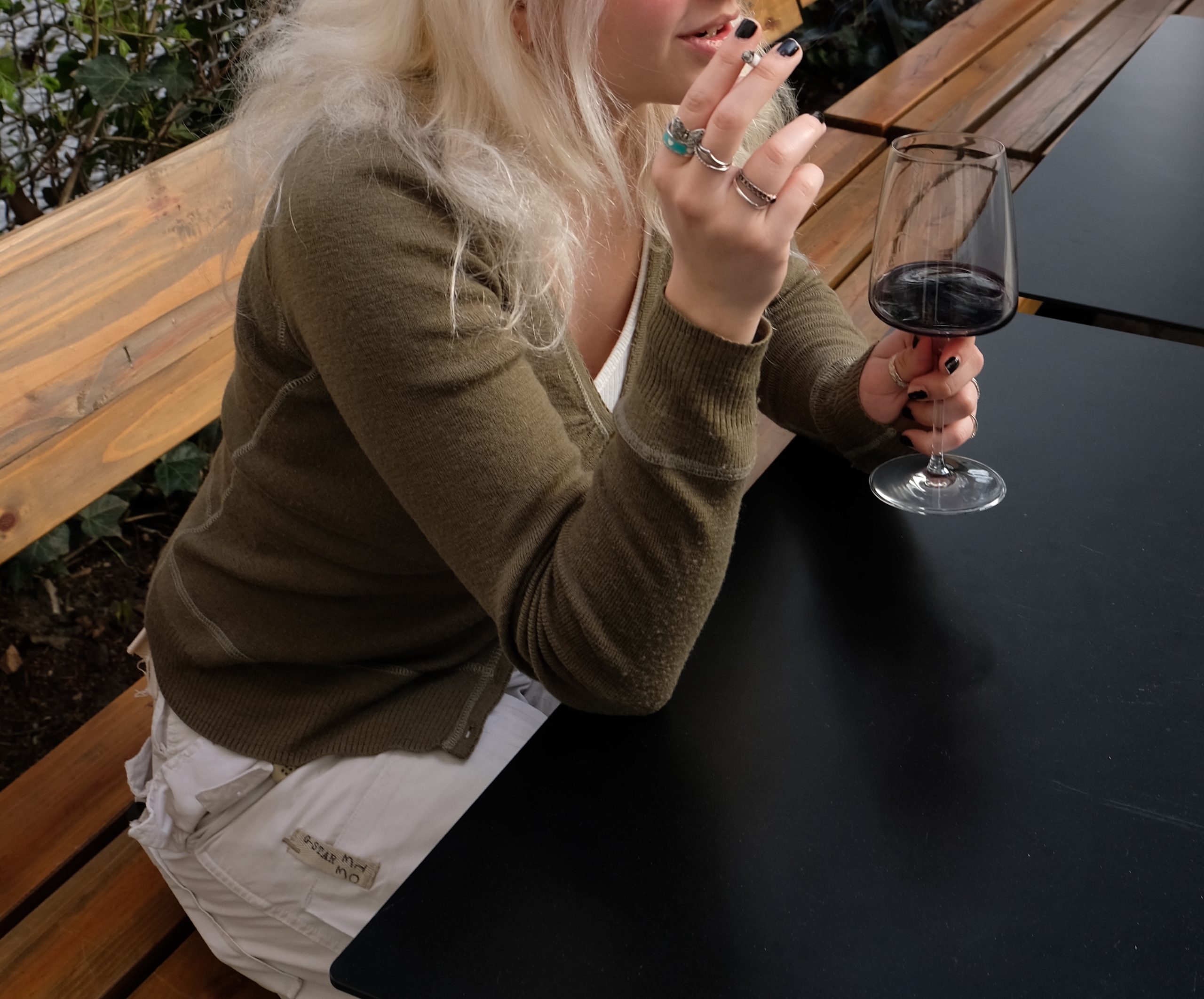
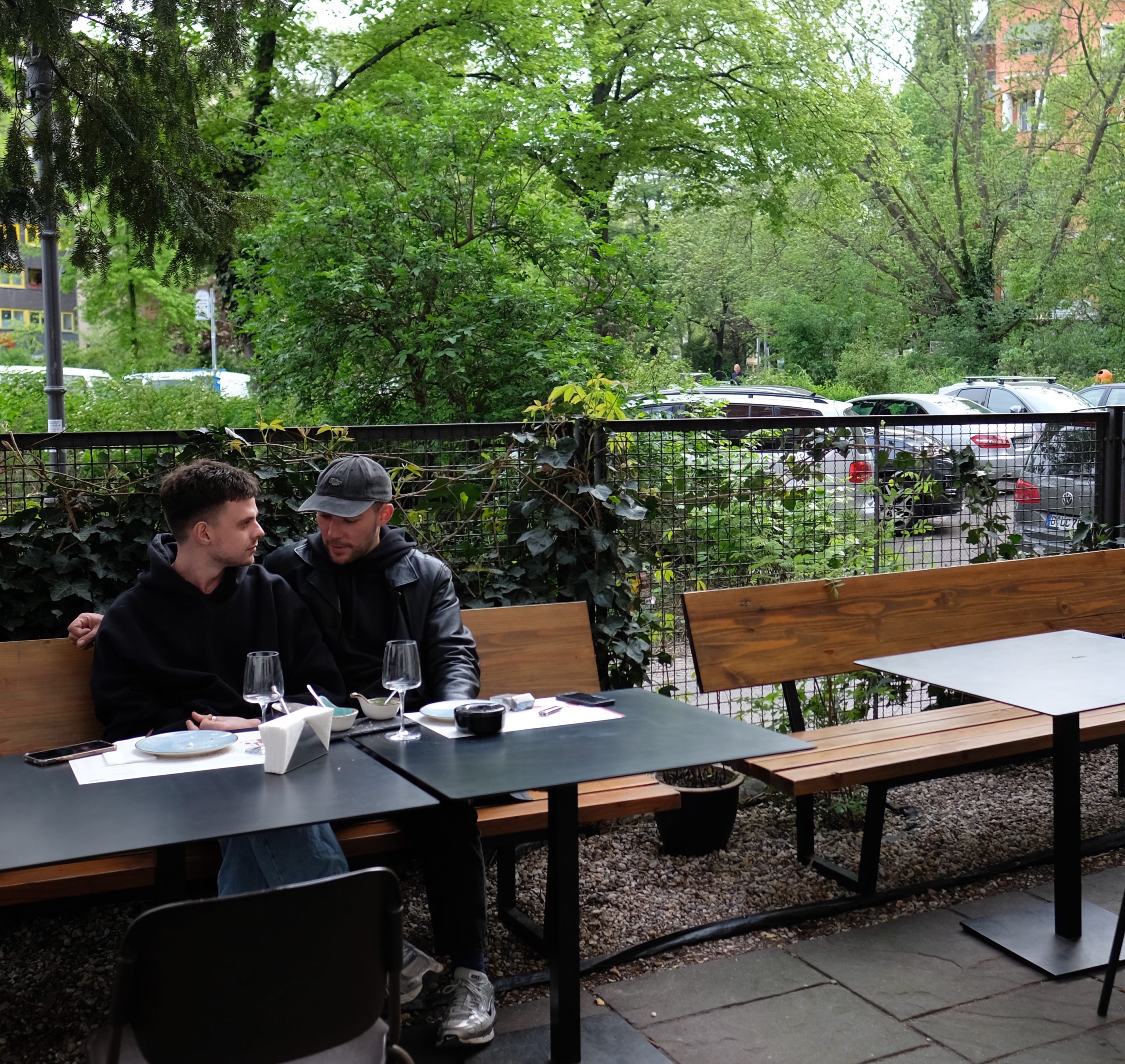
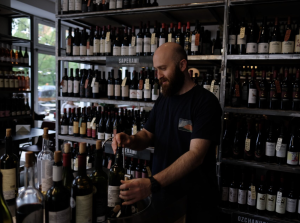
George Sujashvili, representative of 8000 vintages in Berlin getting ready for degustation.
According to expert Paul Knittel, “Berliners are always eager to try something new. There’s just the right balance of distance and closeness to satisfy that craving.” This explains why in the 8000 vintages, one of the most sought-after wines after Saperavi is Amber wine. “I work with the new National Gallery here in Berlin, selling wines at bars and events. Just mentioning ‘Amber wine’ piques people’s interest. They’ve heard the name, they think it’s exciting. They’re artistic and crave intriguing choices,” explains Paul Knittel. So, indeed, Berlin is the ideal place for wine culture to flourish and for small yet historically rich countries to share their traditions.
Georgian qvevri wine is particularly captivating due to its taste, color, and traditional production method. As George Sujashvili notes, customers come from all corners of the globe, and the demand is increasing daily. “After the first week of opening, your terrace is filled with people,” George observes. The staff comprises mainly Georgians but also international individuals, creating a community of wine enthusiasts. 8000 vintages unite Berliners eager to explore the diverse tastes of this city.
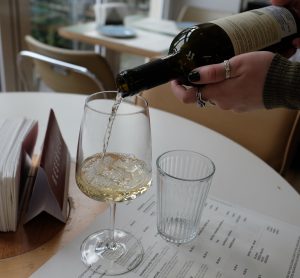
wine degustation in the bar
Paul Knittel also highlights that many in this segment are at least somewhat sustainability-driven, which aligns closely with Georgian winemaking traditions. At 8000 vintages, you’ll find 400 different types of wines straight from Georgia, all locally produced with great care. “We serve as a bridge between producers and Berlin. This can be a driving force behind locally made products,” George Sujashvili remarks. Although Italy, France, and others typically come to mind when discussing wine as noted in research by the Deutsches Weininstitut, Georgia is carving its place in Europe. Despite Italy, Spain, and France consistently dominating the top 10 wine-exporting countries from 1990 to 2022, Georgia is trying to make strides in the European market.
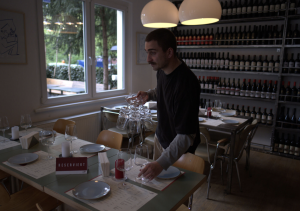
Georgian staff member of 8000 vintages setting the table (supra – traditional feast for Georgians)
Berlin welcomes both tradition and innovation, inviting wine lovers to explore new flavors on its lively streets. It’s the perfect spot for anyone to enjoy diverse cultures, tastes, and the rich history of wine. With 8000 years of harvest to showcase, trying amber-colored wine made through traditional methods is a must.
